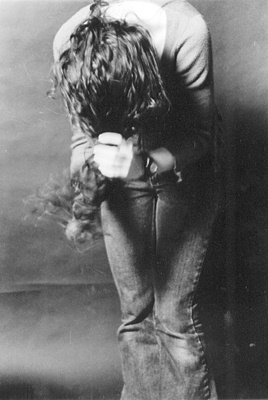All Nonfiction
- Bullying
- Books
- Academic
- Author Interviews
- Celebrity interviews
- College Articles
- College Essays
- Educator of the Year
- Heroes
- Interviews
- Memoir
- Personal Experience
- Sports
- Travel & Culture
All Opinions
- Bullying
- Current Events / Politics
- Discrimination
- Drugs / Alcohol / Smoking
- Entertainment / Celebrities
- Environment
- Love / Relationships
- Movies / Music / TV
- Pop Culture / Trends
- School / College
- Social Issues / Civics
- Spirituality / Religion
- Sports / Hobbies
All Hot Topics
- Bullying
- Community Service
- Environment
- Health
- Letters to the Editor
- Pride & Prejudice
- What Matters
- Back
Summer Guide
- Program Links
- Program Reviews
- Back
College Guide
- College Links
- College Reviews
- College Essays
- College Articles
- Back
Stereotypes vs. Human Nature
Within American are its people, and within those people are different cultures that make up a vast part of American society and how individuals view others. Without knowing it, humans subconsciously put those around us into different categories based upon how one may act, look or speak. Today this is known as stereotyping, that has become more common to people then making decisions. Even though stereotypes may come off as bad, some are not; most having a huge effect on our everyday lives weather we realize it or not. Even though generations are accepting it differently, stereotyping has become more of a battle for most people as we decipher what is true and false in our everyday lives.
Deciding how to accept stereotypes in our lives is also another measure considering we are exposed to analytical statements at a young age. Researchers have proven that during our developmental stage in childhood, we organize our brain into depicting what is good and bad equaling the categorization of our life and down flaws of people, based upon what makes up a person. Even though we decided and say what we want, we do have the power to stop ourselves in the act. Subconsciously categorizing people has become so common throughout the world, stereotyping is cause for many laws we have today and the reason behind social discrimination of races and cultures that often lead to fights, law suites, wars and segregation.
Knowing most people perceive stereotypes as nothing more than a mere lie to cover up the truth, it’s been proven that not all stereotypes are bad. Effective stereotyping allows people to understand and act appropriately in new situations compared to assuming the worst, which researchers have proven a better from of thinking open-mindedly before acting on someone, that often leads to an assumption; i.e. stereotype. Good stereotypes can help a person see the inner truth among things covered in lies such as a person who may come off as bad and lied about but, is a good human being underneath everything. Stereotyping can also be used to make sense of the world around us in different forms. Effective stereotyping can help a person navigate their way through life deciding on things based upon what others have said as well as ignoring the lies that may cause what seems like a bad thing to be good in general.
However, whether we realize it or not stereotypes have made a major impact on our everyday lives, often affecting our decisions on how to act, look and be seen in society today. The pressures of working up to a certain standard based off of statements about our race such as “white people are stuck up snobs” and “black girls get knocked up constantly” are only cause for us to push forward more in who we are. Researchers have found that suppressing stereotypes can cause them to come back faster later on in a stronger way then before which often leads to worse reactions and consequences regarding it. We find ourselves fighting a battle at times we cannot control because of the result of stereotypes or assumptions made about us or someone we know that causes us to think hard about relationships and ourselves ending in results affecting us more than the stereotype intended to do in the beginning.
With everything revolving around stereotypes alone, research has shown that younger generations are taking stereotypes in stride, often breaking the most complex racial stereotype in half based upon experiences with other cultures and the realization that what seemed to be the truth about something is nothing but a lie and experiences most people before us never had. Because of previous history regarding the twisted truths about races, events and how people treated each other due to events that caused them, younger people have been able to slowly push out what they once believed was the truth through programs and personal discoveries that showed them who people really are and how one slur may have fact in, another is was only made up to hurt a specific group of people. With the younger generations today, there’s a stronger mindset how people function that makes all the difference in what one person comes to think compared to another with less experience born in a different era.
Even though stereotypes will always be present in American culture and its people, knowing what to expect and how to react to them effectively will ensure a better form of stereotyping for future generations. Deciding between right and wrong regarding certain stereotypes allows a person to discover more about the truth behind them often made by someone avoiding it, eliminating a bad stereotype and transforming it into a good one.

Similar Articles
JOIN THE DISCUSSION
This article has 0 comments.
